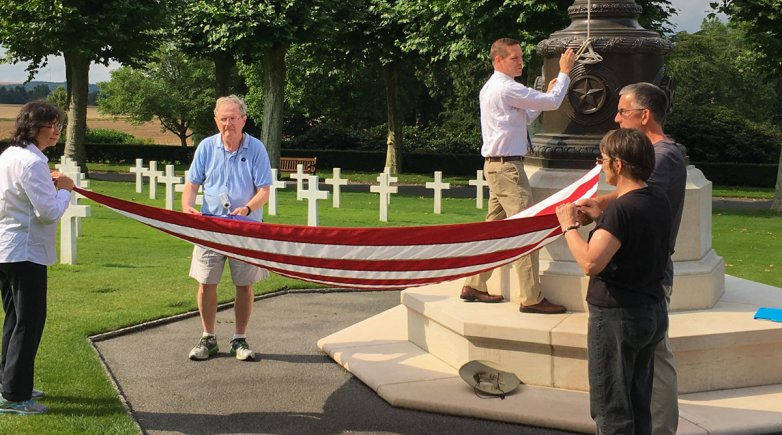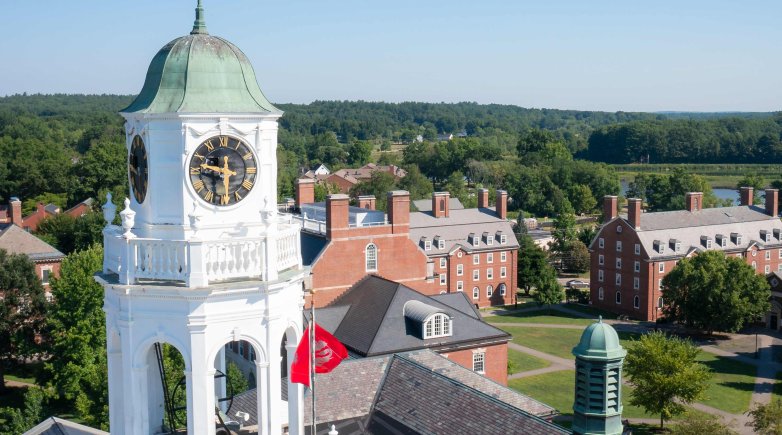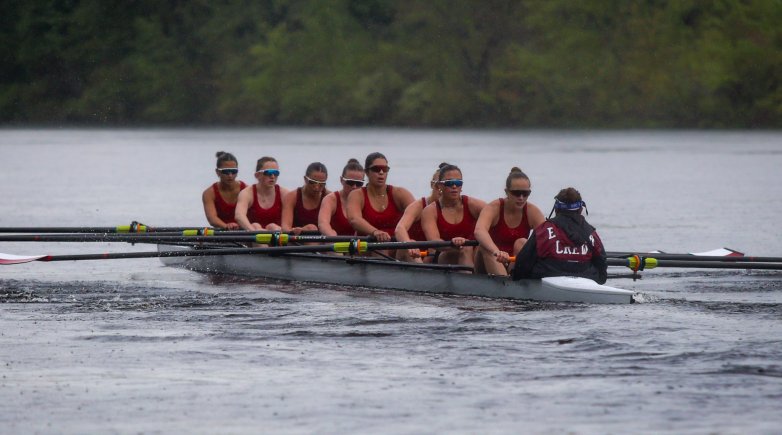Rediscovering heroes: visiting key sites of the Great War
Alumni travel to major battle sites, memorials and cemeteries in France and Belgium with Emeritus History Instructor Jack Herney as their guide.
While visiting the Aisne-Marne American Cemetery, Exeter alumni helped fold the colors at the end of the day.
Exeter expeditions
While Exeter has long extolled the merits of study-abroad experiences for students, it has also done a particularly good job over the last 25 years of engaging alumni, parents and friends in overseas adventures through Exeter Expeditions. Run by the Office of Institutional Advancement, Exeter Expeditions typically offers several travel programs in a given year, each lasting approximately seven to 10 days. Best of all, Exeter instructors with deep knowledge of the subject matter serve as guides for the duration of each trip, and the group size is kept small to ensure a Harkness-like experience.
World War I battle sites
History lover and new Trustee President Tony Downer ’75; P’06, P’06, P’07 says he came away from his 2016 Exeter Expeditions trip to the significant sites of World War I with his “head spinning … in a good way.” Timed to coincide with the 100th anniversary of the Great War, the program, adds Downer, was “very well thought out in terms of structure and content,” while the intimate group size of 16 people made for rich and engaging conversations.
Designed and led by Emeritus History Instructor Jack Herney ’46, ’69, ’71, ’74, ’92, ’95 (Hon.), the trip incorporates major battle sites, memorials and cemeteries in France and Belgium while simultaneously examining the war through a distinctly Exonian lens. Notes Downer: “Jack is a masterful storyteller, and what he did exceptionally well was draw a connection between Exeter and this story of global significance. For example, he had researched Harry Butters in the class of 1909, who perished in the war, and we were able to visit Butters’ grave site near the French village of Méaulte. By focusing on the Exeter thread, he helped the group further identify with the war and its human toll.”
Herney, too, thoroughly enjoys the trip, which gives him the opportunity to discuss with more seasoned “students” several of the most important sites along the Western Front. “The beauty of this tour is that the participants are old enough to have really studied World War I,” he says. “Plus, everyone in the group has a story — a grandfather or other family who served in the war or was somehow connected. That’s what makes it so moving.”
Editor's note: This is an excerpt of an article that first appeared in the summer 2017 issue of The Exeter Bulletin.


